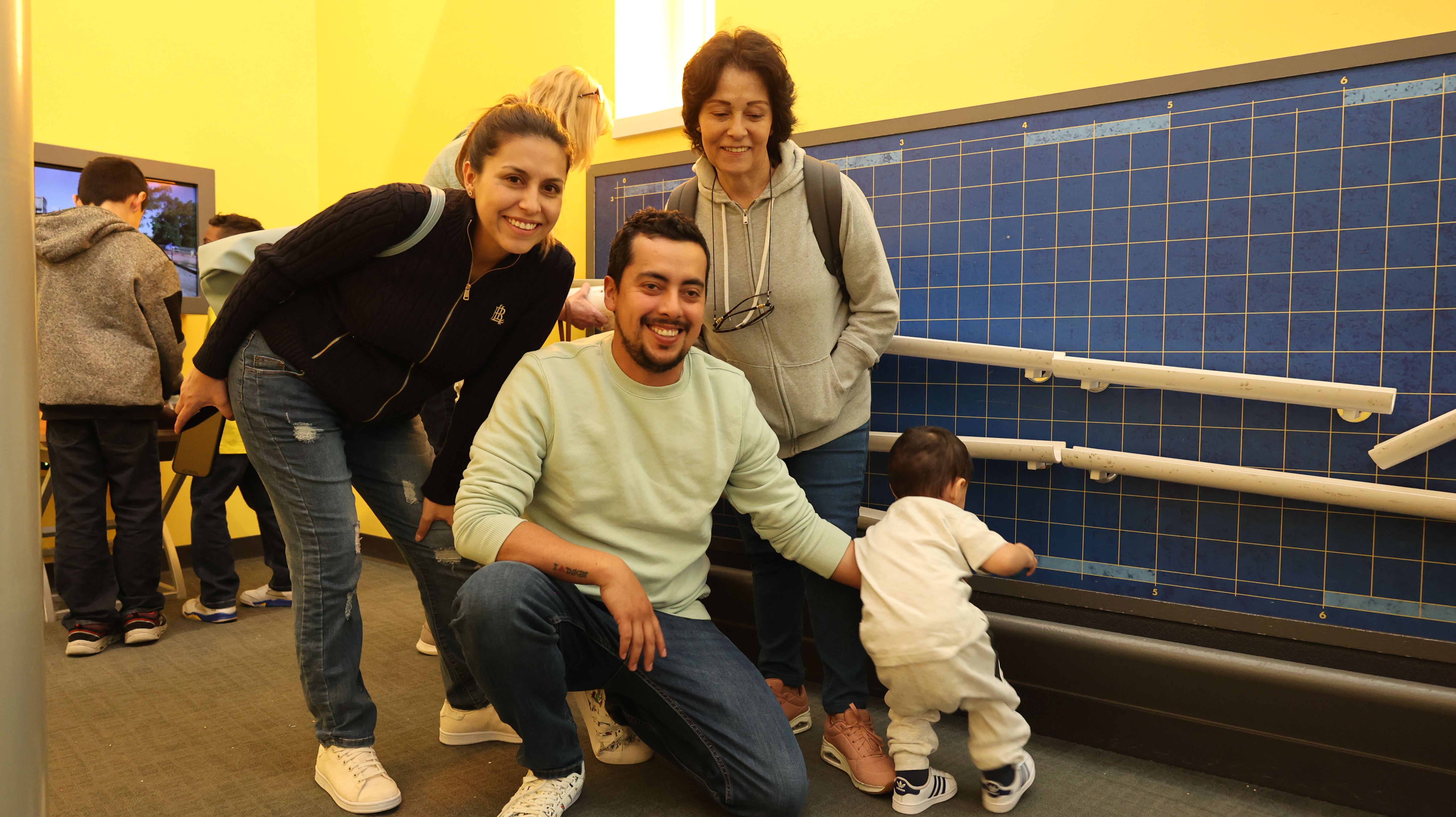
Father’s Day is a day to celebrate dads, grandpas and all the diverse fatherly figures out there. But Father’s Day or not, we are lucky so welcome so many great dads every day into the Museum who are out having a day of fun with their kiddos.
While these celebrations primarily occur within human society, the natural world also offers glimpses of fatherly devotion. In the wild, there are several animal species where fathers play essential roles in rearing their young, exhibiting remarkable care and protection. Whether it's the lion who guards the pride, the seahorse that carries and nurtures the eggs, or the emperor penguin that incubates the eggs in harsh Antarctic conditions, these instances of paternal care exemplify the significance of fathers not only in human society but also in the wild.
Are you looking for something special to do with your old man this Father’s Day? Why not take a trip to the Museum!
Get tickets, here.
Here are a few species you can find at the Museum that deserve a special Father’s Day shoutout:
Great horned owl
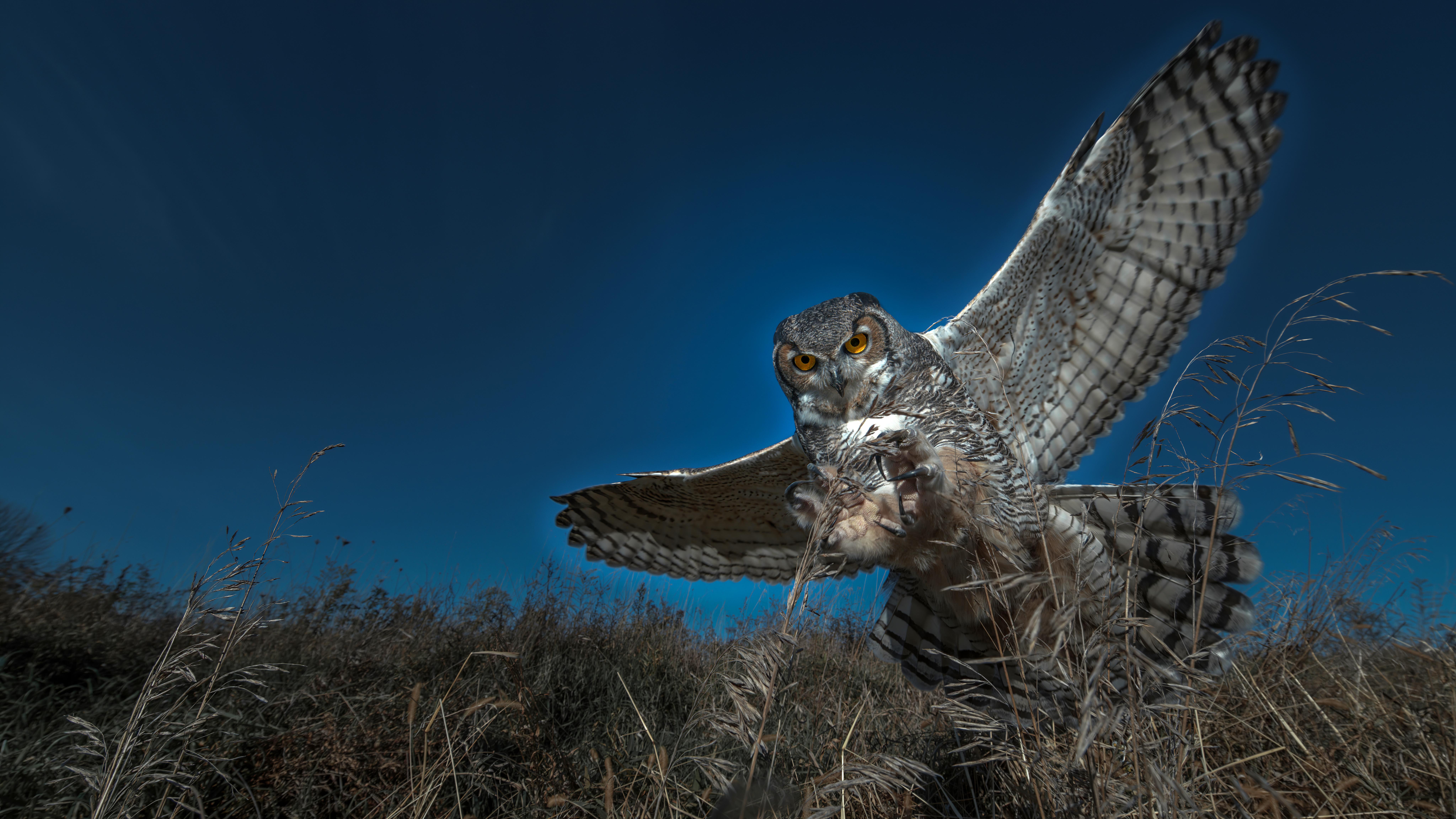
Great Horned Owl (Photo/Wings Over the Water)
While mommy Great horned owls are responsible for incubating eggs and can stay with newborns constantly for their first two weeks of life, the papa owls are the ones going out to bring home the bacon — or rather rats, lizards and snakes. Mother great horned owls will only leave the nest if the dad doesn’t bring enough food back to the nest to eat. Chop, chop, Dad!
Where to find Great horned owls at the Museum: In the white-tailed deer diorama in Edge of the Wild on the second floor.
Coyote
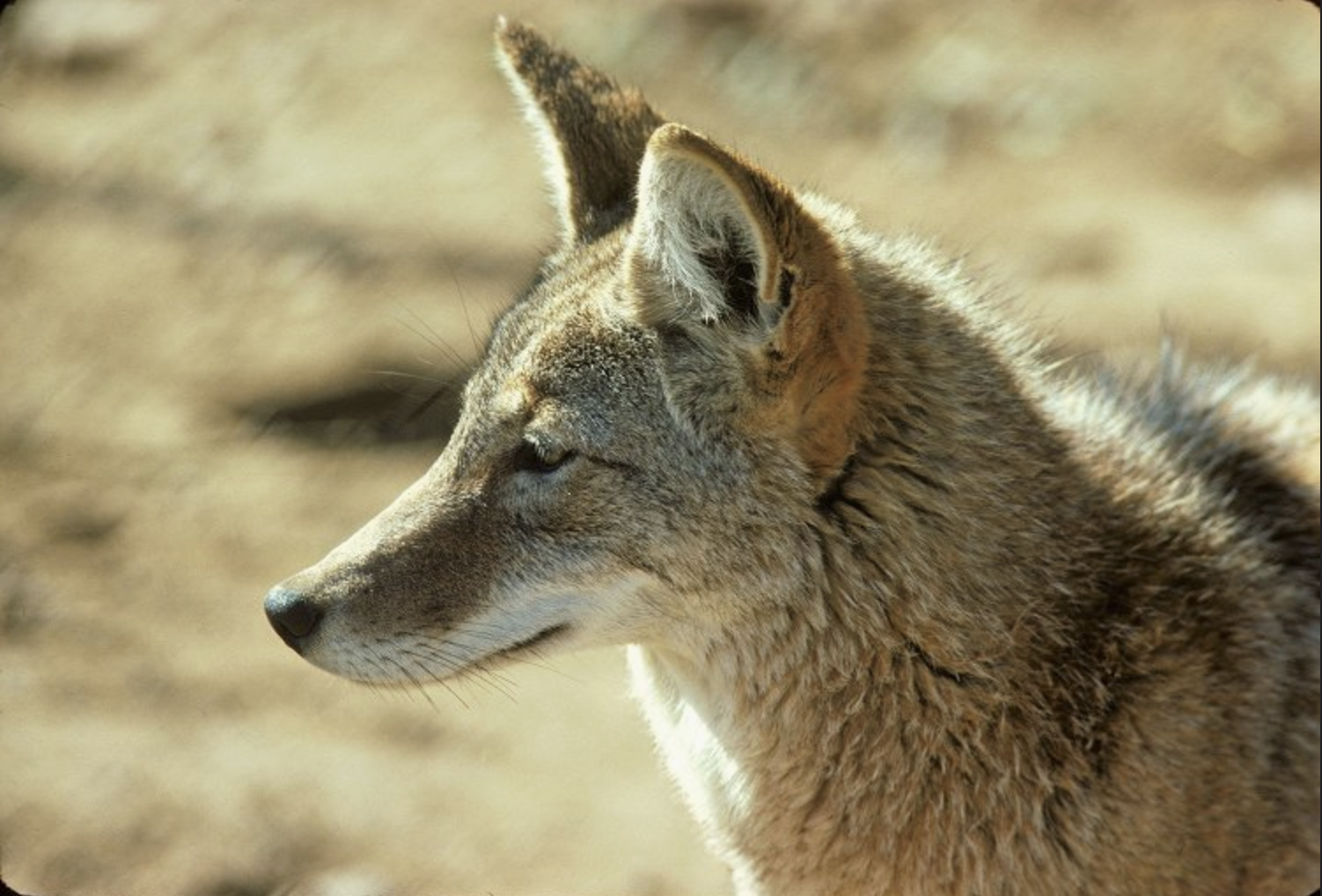
Coyote. USA, 1979. (Photo/Joe Van Wormer)
While mama coyotes nurse newly born young in their den, the fathers hunt for and bring food for their busy partners. Coyote moms will be fed exclusively by the fathers for the first two or three weeks of their pups lives or until the pups are ready to eat meat. Then the coyote fathers and mothers both hunt and bring food to the pups.
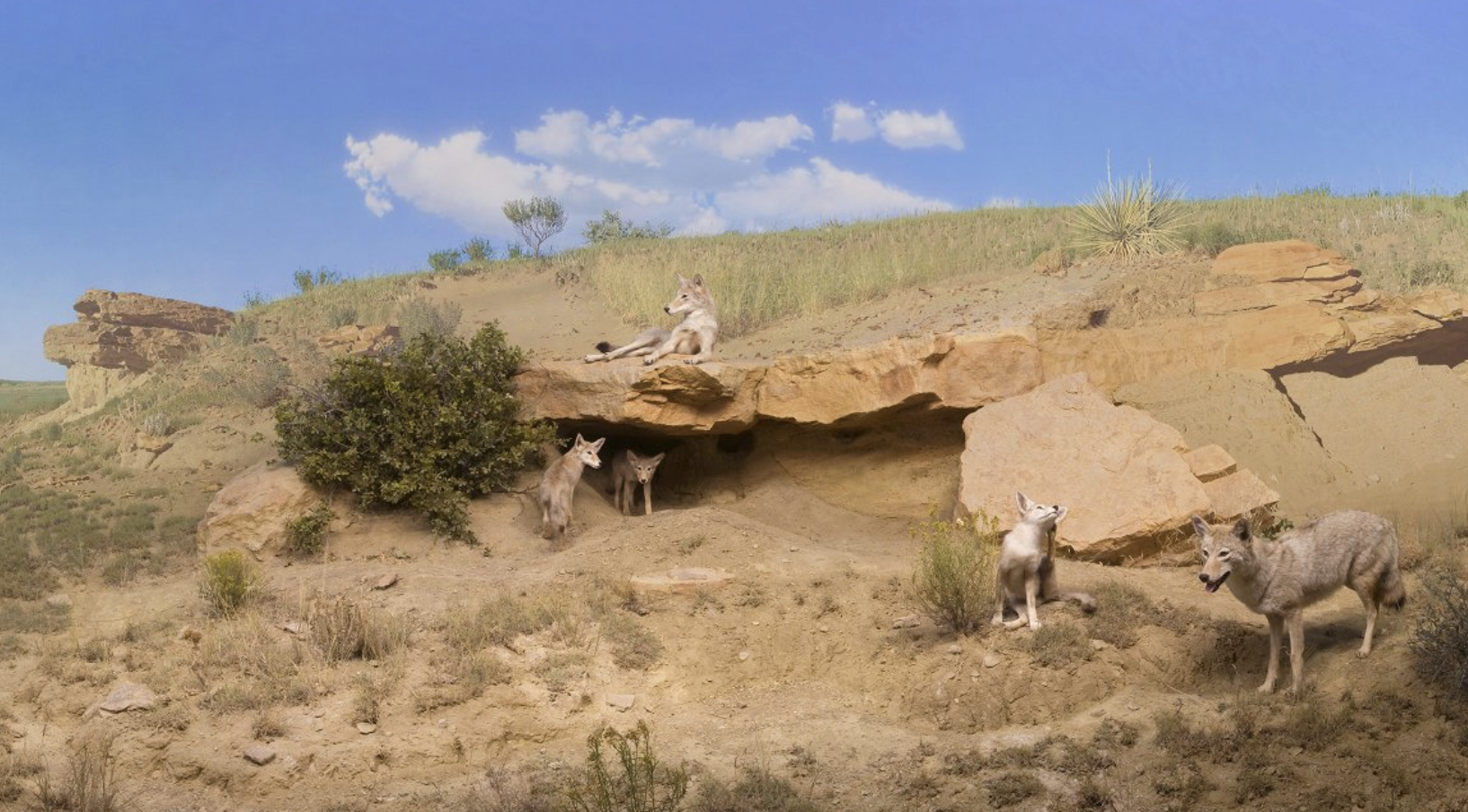
Diorama depicts a coyote den near the town of Kiowa in Elbert County, Colorado, United States. (Photo/Richard M. Wicker)
Where to find coyotes at the Museum: North American Wildlife halls on the second floor.
---
Related: 7 Spooky Animals and Where to Find them at the Museum
---
Grey wolves
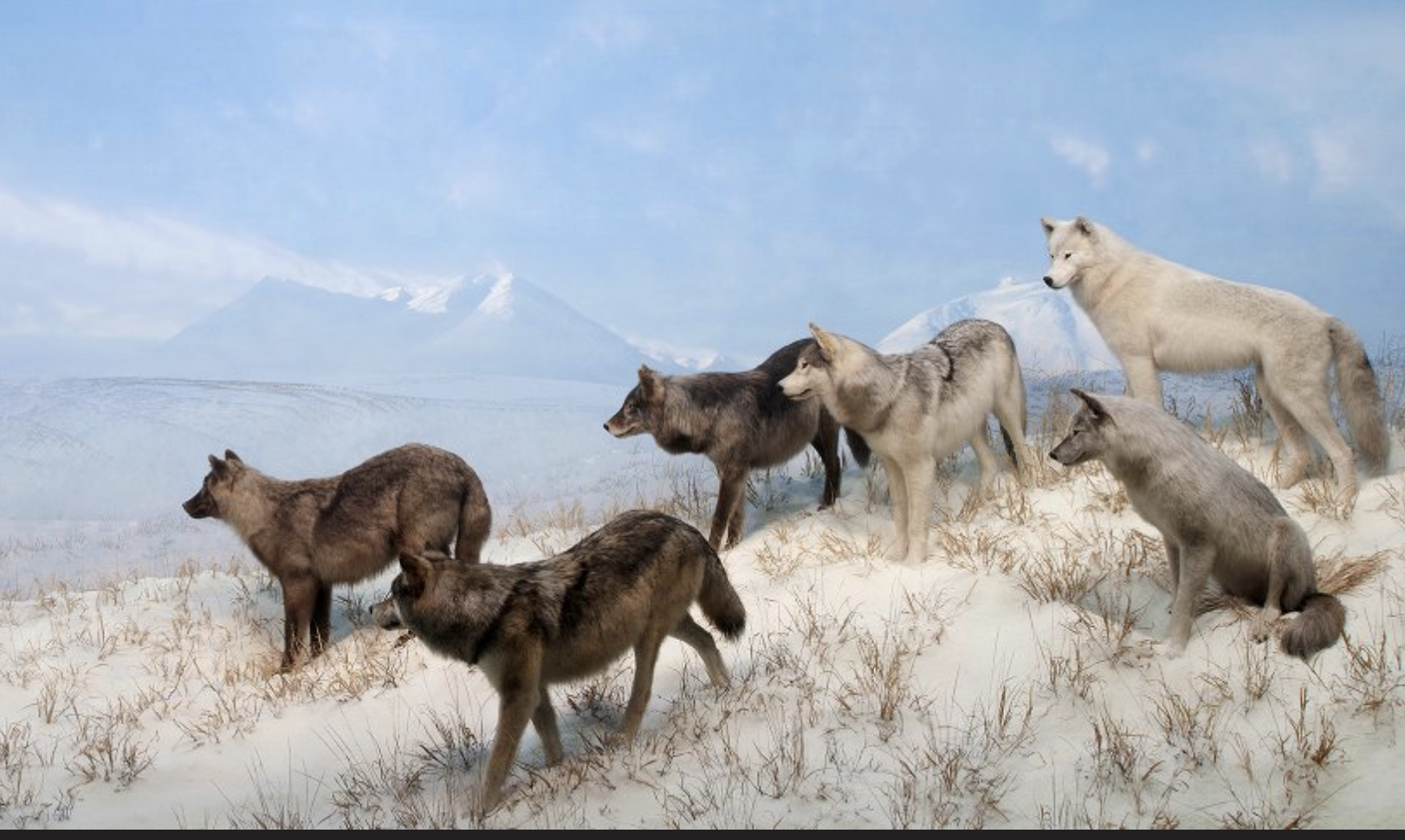
Also known as Grey Wolf Group, this diorama depicts 3 male and 2 female Alaskan Grey Wolves in Anatuyuk Pass, north of Brooks Range , Alaska. Their backs are turned toward the viewer to watch the caribou in the distance. positioning wildlife in this way was, at the time, breaking the rules of good exhibit production. (Photo/Rick Wicker)
Grey wolves are true pack animals. They are sociable and protective but can also be playful with their pups. The father of the pack watches over and protects the entire pack but also helps bring food to the young pups in their den after they have started eating meat.
Where to find Grey wolves at the Museum: North American Wildlife halls on the museum’s second floor.
---
Related: Learn more about our amazing Zoology Collections, here.
---
Galapagos penguins
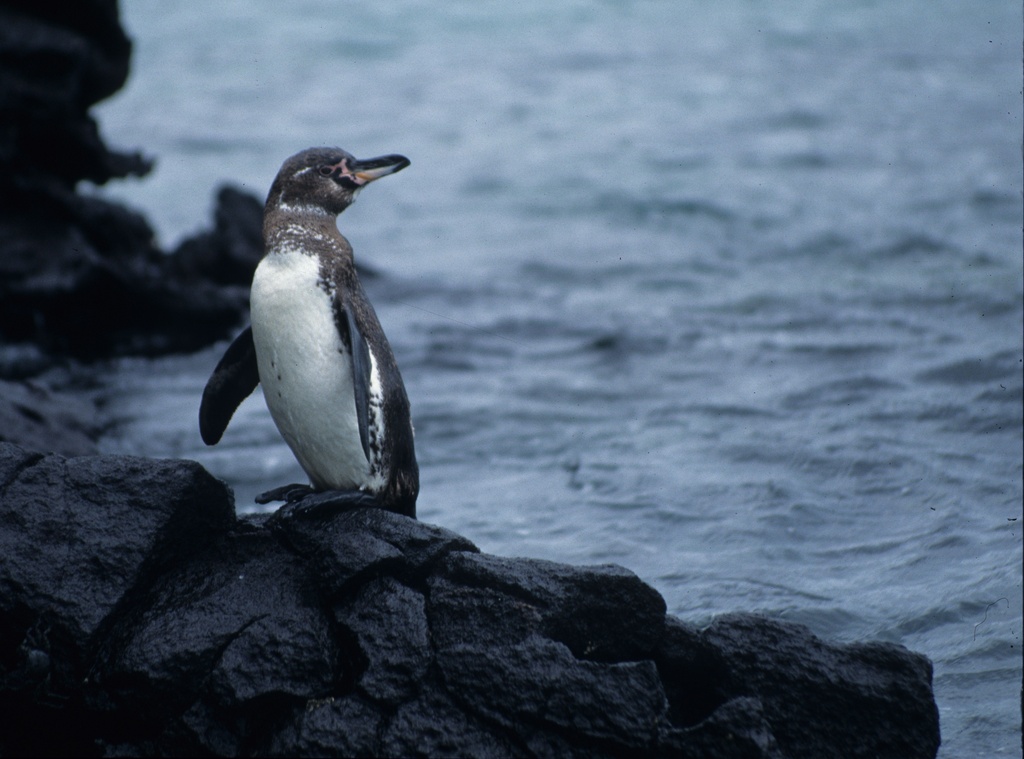
Galapagos Penguin (Spheniscus mendiculus), Galápagos Islands, Ecuador. May 18, 2011. (Photo/ Derek Keats- Wikimedia Commons)
Galapagos penguin dads know a lot about both romance and responsibility. The South American penguin pops form tight bonds with their partners. Pairs do a lot to support each other be it feather cleaning, flipper patting or helping build nests that are often lined with leaves and twigs for decoration. The penguin dads and moms work hard, fishing one at a time, to bring more than 20 fish a day to their hungry and growing chicks.
Where to find penguins at the Museum: Darwin diorama on the third floor.
---
Related: Understand How Jackrabbits Might Survive Climate Change
---
HUMAN-Dads at the Museum!

A family during the Día del Niño Free Day at the Denver Museum of Nature & Science, 2023. (Photo/ Julio Poletti)
Walking around the Museum, we guarantee you will see a lot of dedicated, loving fathers. Whether it’s in the Museum or anywhere else, it gives us a warm and fuzzy feeling to see papas taking an active role in the lives of their children and sharing their enchantment of life and nature with the next generation!
Pro tip for the Super Dads: Become a member and visit any and every day with free general admission for an entire year. Membership means more memories to last a lifetime!
Start saving and get your membership, here.